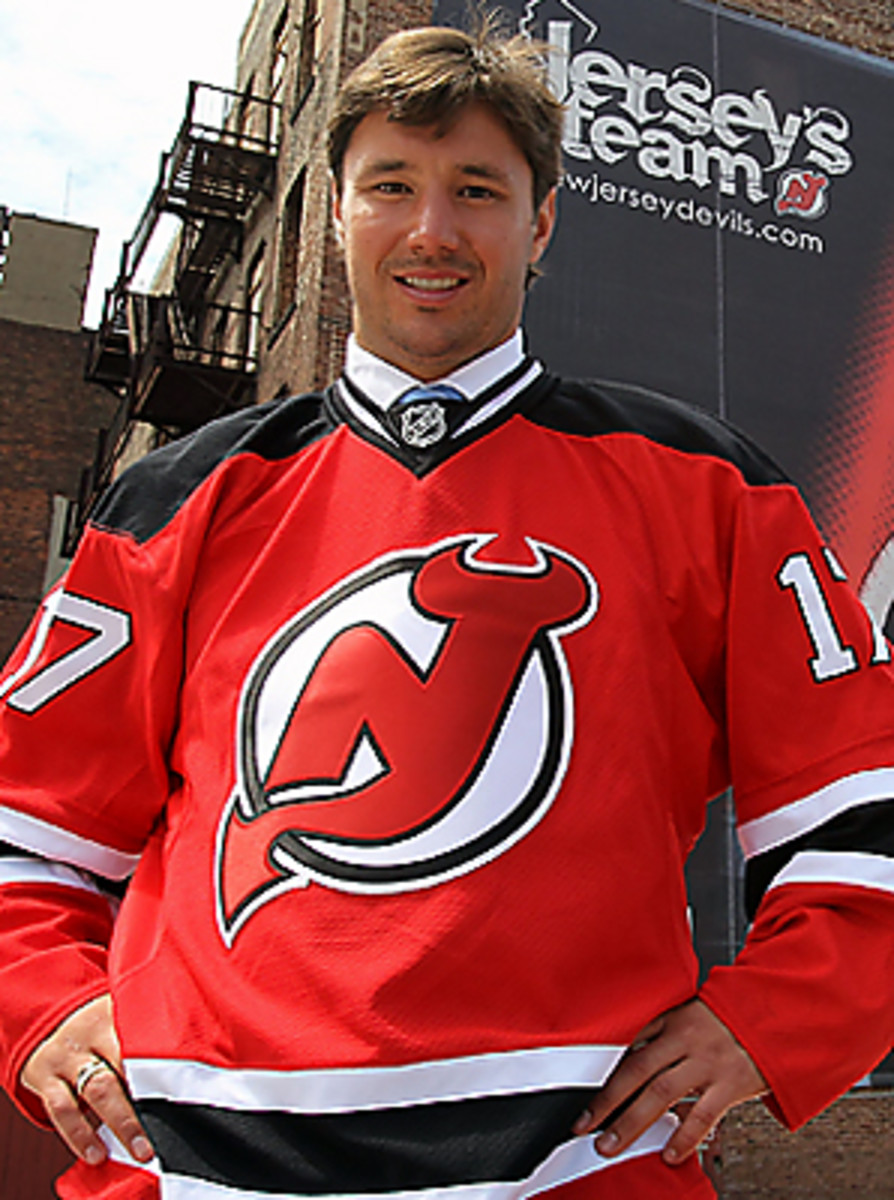Why lower the hammer now?
Well, duh.
As I wrote in an earlier piece, the 17-year term of the deal signed between Kovalchuk and the New Jersey Devils more closely resembles a prison sentence than it does a sporting contract. His sly assurances during Tuesday's press conference to announce the deal aside, the Russian winger is as likely to be suiting up age at 44 as is Rick DiPietro. Of course the deal was set up to beat the cap.
But that's never stopped the league from approving a deal before, and that's what makes Tuesday's news so startling. What prompted the league to lay the hammer down now?
It's not like this is the first time they've smelled something fishy. Quietly, they've investigated the terms of several recent contracts, including the 12-year-deal Marian Hossa signed with the Hawks last summer, Chris Pronger's seven-year extension that just kicked in, or Roberto Luongo's 12-year agreement with the Vancouver Canucks. Despite the fact that all of these would theoretically see the players performing into their early forties, those inquiries simply dissipated without so much as a slap on the wrist, let alone the imposition of fines or the loss of draft picks. Both remediations are available to the league if they feel that, for example, a timeline for the player's retirement had been predetermined during the course of negotiations.
So why now? Obviously a line had to be drawn at some point simply on principle, but aside from that, why take a stand against not only Kovalchuk but Lou Lamoriello, a staunch Gary Bettman advocate, and Devils director of hockey operations Steve Pellegrini, who previously worked for the league as a cap specialist?
One thought, offered by reader Anthony Shook, is that it comes down to salary discrepancy, the distance between the cap hit and what the player is paid most frequently over the life of the contract. For example, Hossa's highest take-home rate is $7.9 million, or just $2.67 million more than his $5.23 million cap hit. Pronger's best year will net him $7.6 million, or $2.69 million above his $4.91 million cap hit. In Kovalchuk's case, he's bringing in $11.5 million, or nearly $5.5 million more than his $6 million cap hit. Hard to argue the deal's not disingenuous when broken down like that.
So maybe it could be seen as a parent disciplining two kids caught telling a fib ... but it feels more like a shot across the bow of the Players' Association than anything to me. A reminder that the CBA, for all its loopholes, is still in effect and that the league won't stand for it being trampled beyond recognition before the next round of negotiations.
And maybe the timing isn't such a surprise considering that the association's recent meetings gave rise to expectations that Donald Fehr may soon be girding his loins for battle on behalf of the PA. Hey, if there's one thing Bettman loves, it's reminding the PA that he waxed them during the last round of talks. So this might just his idea of a "welcome to the neighborhood" basket to Fehr.
What happens now? We'll wait until the morning, when we should get an official statement from the league. It's expected they'll announce they've asked the two sides to renegotiate the terms to arrive at a point more in keeping with the rules.
That could happen, but the more likely event is that an official protest from the NHLPA will follow. Assuming that happens (I'm also assuming lunch will follow breakfast tomorrow), the matter will go to an arbitrator.
What happens then is anybody's guess.





